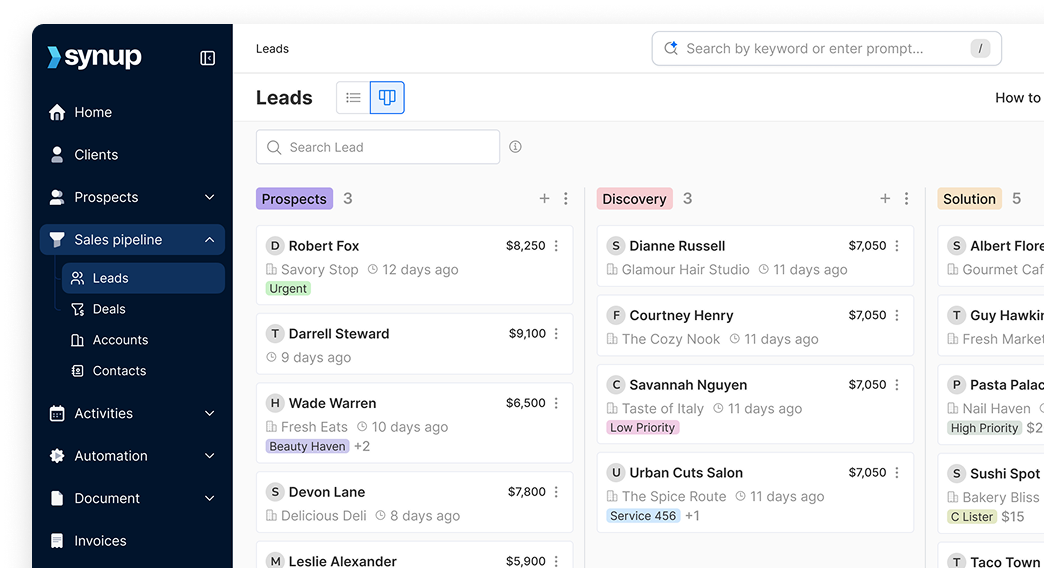Everything You Need to Know about Local SEO [2025 Edition]
Empower your business with Synup's ultimate guide to mastering local SEO strategies. Elevate your online presence today!
Introduction
You're running a local business, be it a cafe, a bookstore, or a law firm, and you're good at it. But being good locally is not just about offering excellent products or services anymore; it's also about visibility.
How will Mrs. Johnson from three streets over know that you've got the best blueberry muffins in town unless you show up when she looks for "best blueberry muffin near me" on her phone? That's where local SEO comes in.
This guide is a hands-on toolkit, replete with strategies, insights, and actionable steps designed to put your business on the local map—literally. We're tackling everything: from why local SEO is your new best friend to the nitty-gritty of ranking factors that even some seasoned marketers overlook.
Here’s a mind-blowing stat - "46% of all Google searches are seeking local information". So, whether you’re a marketer looking to scale your local client's bakery business or a business owner wanting to know how to outshine competitors on Google, there’s something here for you.
You don’t need a degree in marketing to understand this guide; just a keen interest in growing your local business online.
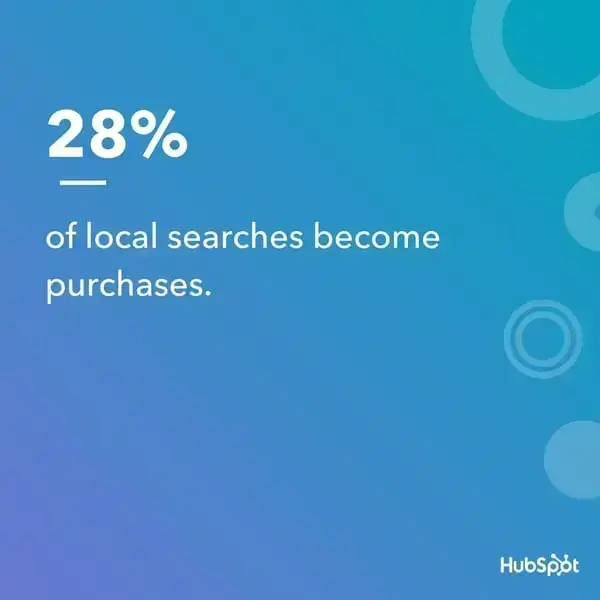
What is Local SEO?
The Basic Definition
You might think local SEO is just about helping a corner coffee shop show up in Google searches. While that's part of the strategy, there's more to it. At its most basic, local SEO is a distinct strategy within the broader field of SEO geared towards increasing your business's visibility in local search results.
Let's say you're an optometrist in Austin. When someone searches "optometrist near Austin," you want your practice to not just show up but also dominate the search results.
The Nuances
Local SEO isn't a one-size-fits-all kind of deal. What works for a bakery in San Jose won't necessarily be the game plan for a tech start-up in Silicon Valley. This is where a thoughtful local SEO strategy comes into play.
You have to consider factors like local competition, customer behavior, and even the specific algorithms search engines use for local searches.
The best part is that search engines have become so advanced that they can pinpoint where a search is coming from without the user having to type the location. That's what we call local search intelligence.
The Tactics
When you want to know how to improve local SEO, focus on the details. It's not just about claiming your Google Business Profile (though that's crucial); it's about making sure every piece of information is accurate.
Then there's the art of collecting customer reviews, crafting location-specific content, and building quality local citations. These are the nitty-gritty aspects of how to do local SEO effectively.
Each tactic serves to bolster your online presence and make your business more appealing to search engines. Think of it as a multi-pronged approach where each element supports the other.
The Evolving Landscape
When you want to know how to improve local SEO, focus on the details. It's not just about claiming your Google Business Profile (though that's crucial); it's about making sure every piece of information is accurate.
Then there's the art of collecting customer reviews, crafting location-specific content, and building quality local citations. These are the nitty-gritty aspects of how to do local SEO effectively.
Each tactic serves to bolster your online presence and make your business more appealing to search engines. Think of it as a multi-pronged approach where each element supports the other.
Why is Local SEO Important?
The Conversion Factor
Suppose you've got a shop selling handmade soaps. You've poured love and care into each bar. Across town, Jenny's searching online for "organic handmade soap near me." She's not just window shopping; she wants to buy.
In this case, local SEO is how Jenny can find your soap instead of someone else's. If your shop pops up at the top of her Google search, chances are she’s coming to you. Simply put, local SEO takes someone's need—their actual search—and connects them to the right doorstep.
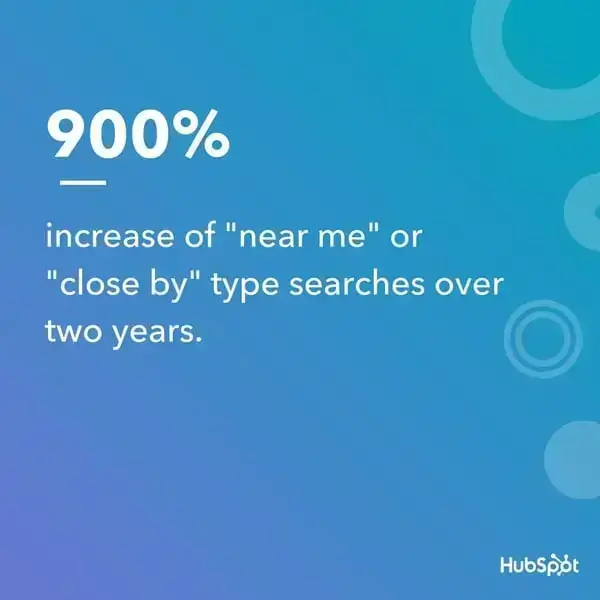
The Community Connection
Picture a local farmer's market where everyone knows each other. Now, think of it as an online community. That's what local SEO does for you. It takes your business and puts it right in the middle of your digital 'neighborhood.' When folks nearby search for what you offer, you're right there, saying, "Hey, come on in. We're local, just like you."
It's not about just bringing in more sales; it's about building a sense of belonging, a digital community where you're the local go-to resource, not just a random option.
The Trust Element
Do you know how good it feels when a friend recommends a great book and it turns out to be a page-turner? That's the kind of trust local SEO can help you build, but on a much larger scale. Imagine someone new to your area looking for a reliable pet sitter.
They Google it, and there you are, with loads of positive reviews. It's like the whole neighborhood is vouching for you. Local SEO is how you turn those online searches into a crowd of local fans, all saying, "These folks are the real deal."
The Competitive Edge
Imagine running into an old classmate. You both started similar businesses, but yours is thriving while theirs is just hanging on. Why? Because when locals search for services you both offer, your business shows up and theirs doesn't. That's local SEO at work. Local SEO makes sure you're not lost in the crowd and stand tall as the first choice for locals. It's not about beating the competition; it's about being the one everyone trusts and prefers.
The Adaptability Quotient
Remember mixtapes? They were all the rage, and then suddenly, they weren't. The world moved on to streaming. Your local SEO techniques need to be just as adaptable.
Keywords and algorithms are always changing. What was a hit yesterday might not even register today. It's like fashion; you have to keep up with the trends to stay relevant.
Local SEO isn't a 'one-and-done' deal; it's more like a living, breathing entity that needs regular check-ups and updates. Staying current is the name of the game.
What Types of Businesses Can Benefit from Local SEO?
As per Google local search statistics, 92% of searchers will pick businesses on the first page of local search results. Here are the types of businesses that can take advantage of local SEO.
Services Providers
Let's say you're a plumber. When someone's got a leaky faucet, they're not going to spend much time scrolling through pages of search results. They're going to pick a plumbing service from the top few options. So, if you're not there, you're basically invisible.
Local SEO ensures that when a pipe bursts and someone panics, you're the calm, professional solution that appears to save the day. From lawyers to dog walkers, if you're providing a service, local SEO is your 24/7 billboard.
Food and Beverage
If you run a cafe or a restaurant, you know that location is everything. But guess what? Online location matters just as much. When someone searches for "best tacos near me," local SEO is what puts your amazing fish tacos in front of eager eyes. With local SEO, you're not just another eatery; you become the local favorite.
Retail Stores
Think of your brick-and-mortar store like a book. Local SEO is the cover that either draws people in or gets passed over. When locals search for products you sell, whether it's vintage clothes or specialized camping gear, you want your store to be the first thing they see. It's like being on the front page of a local newspaper, but even better. This front page is tailored to show your store to people actively looking for what you offer.
Medical Practitioner
We've all been there—waking up feeling under the weather and Googling for a nearby doctor. Now, if you're a healthcare provider, you want to be the clinic or practice that pops up every time someone searches for it.
Local SEO is the modern-day version of word-of-mouth recommendations, amplified to reach anyone with a smartphone and a health concern. With local SEO, your practice becomes the community's first call for health needs.
Specialty Shops
Ever tried to find a store selling artisanal cheese or custom-made bike parts? These unique businesses thrive on being found by the right people. That's where local SEO comes into play, illuminating your store for all those niche customers searching for what you offer.
They don't want generic; they want specialized and local SEO ensures they find your unique offerings first.
How Does Local SEO Work?
Search Engine Algorithms
When you're searching for the best local pizza joint, you don't want a sushi place in Tokyo coming up, do you? That's where search engine algorithms can help.
They act like the digital navigator, guiding you to exactly what you're looking for, right in your neighborhood. But here's the kicker: these algorithms are always changing, and you've got to keep up.
Tweak your website, update your Google Business Profile, and keep an eye on what's trending. You want to stay in the good graces of this very capricious concierge.
Keywords and Phrases
You need to choose your keywords to fit the local scene. If you run a bakery in New Jersey, it's no good to focus on generic terms like "best cakes." You'll get lost in the crowd.
Instead, zero in on what people in NJ are actually typing into their search bars: "best New Jersey bakery," perhaps. These targeted phrases are your ticket to the top of the local search rankings. Remember, it's not just what you say; it's how you say it.
Online Reviews and Ratings
Imagine you're new in town and you're asking locals where to get the best coffee. Every third person mentions the same cafe. You'd go there, wouldn't you? Online reviews work the same way.
If your local business has a ton of positive reviews, search engines will notice. Every good review you receive pushes your candidacy higher in the local electoral race for visibility. So, encourage those reviews. Respond to them. Make your customers feel heard.
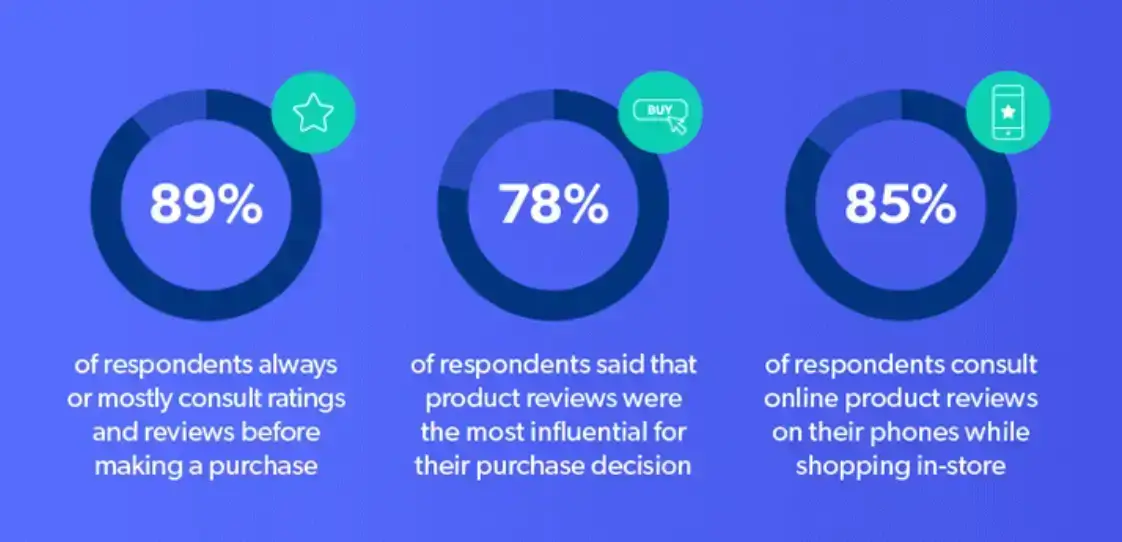
Local Backlinks and Citations
In the digital realm, local backlinks and citations are nods of approval. These are other websites, preferably local and reputable, that link back to your business. These digital nods can be from local bloggers, news outlets, or any respected local website. The more you get, the higher your local credibility soars.
Mobile Responsiveness
Say you're out and you suddenly decide you want a haircut. What do you do? Pull out your phone and Google "best haircuts near me," right?
Now, if a local salon’s website doesn’t load properly on your phone, you're not going to bother, are you?
That's why mobile responsiveness is key. In the smartphone age, having a mobile-friendly site isn't just nice; it's absolutely essential.
Local SERP Features
The Google 3-Pack
When you search for a local service, Google often shows a map with three business listings underneath. This is the coveted Google 3-Pack. Want to land a spot there?
Start by optimizing your Google Business Profile. Make sure your SEO local listing is complete with accurate business hours, location, and categories. Regularly update photos and encourage customer reviews.
This isn't just for show; it's a powerful tool to drive local foot traffic.
Local Knowledge Panel
Right next to your search results, you'll often find a box filled with business info—this is the Local Knowledge Panel.
To get one for your business, you first need to claim your Google Business Profile. Fill it with essential details like your address, phone number, and business hours. Add high-quality photos and make sure to manage and respond to reviews. This panel acts as your online business card; make it impressive.
Local Organic Results
These are your standard search results but with a local twist. To rank well here, on-page SEO is crucial. Use local keywords in your online content, including meta descriptions and titles.
Also, ensure your website has a clean and organized structure; search engines and users both love this. Consider it the online version of keeping a tidy, well-organized shop.
Local Paid Ads
Think of these as the billboards of the digital landscape. They're paid ads that appear at the top of local search results. If you’re struggling to rank organically, investing in local Pay-Per-Click (PPC) ads can give you that much-needed visibility.
Make sure your ads are well-crafted and targeted. The more relevant they are to the local searcher, the more bang you get for your buck.
Local Carousel
The local carousel is a scrollable list of businesses that sometimes appears above the search results. It's highly visual, often focusing on restaurants, hotels, and similar businesses.
To get on this, stunning visuals are the key. High-quality photos of your dishes, rooms, or services can make you stand out in this eye-catching display.
Image and Video Packs
Images and videos can also appear in local searches. These packs usually show up for queries that could benefit from visual content.
To rank here, your visual content must be top-notch. Use high-quality, relevant images and videos, tagged with local keywords to draw people.
Snippets and FAQs
Sometimes, search results include a snippet of information or a list of Frequently Asked Questions (FAQs).
To get featured here, structure your website content in a clear, question-and-answer format. Use subheadings for questions and provide concise, straightforward answers to customer queries.
Local SEO Ranking Factors
Google Business Profile Ranking Factors
Your Google Business Profile is the first thing people see when they Google you, so you better make it good. Now, we're not just talking about listing your name, address, and phone number, although that's where you start. Accuracy is key. If your sign says you're selling oranges but you're selling apples, you're going to have some very confused and irritated customers.
But let's dig deeper. Your business category is not just a label; it's a promise. It tells people what they can expect from you. If you're a bookstore that also serves coffee, make sure you tick off both categories. Don't just settle for 'Retail'—get as specific as you can. Google loves details, and so do your customers.
And let's talk visuals. In this Instagram age, a picture really is worth a thousand words. So, make those words count. Upload crisp, attractive photos of what you offer—be it food, apparel, or services. Show people why they should choose you.
And while you're at it, throw in a virtual tour of your place. Let them 'walk' through your business before they decide to actually walk through it.
Now, onto reviews. The more positive reviews you have, the richer your profile gets.
But here's the clincher: respond to them. Does someone praise you? Thank them. Someone has a gripe? Address it. Publicly. It shows you care. Google likes businesses that care.
Local Listings and Citations
Local listings are the online directories and local websites where your business gets mentioned. And in the world of Local SEO, more mentions mean better visibility.
First things first: consistency. Make sure your business name, address, and phone number appear the same way everywhere. It's not just OCD; it's SEO 101. Inconsistent information confuses search engines, and a confused search engine won't recommend you to anyone.
But let's not stop at just the usual directories. Think about where your customers hang out online. Are there forums, blogs, or online communities related to your field? Get listed there. Offer to write guest posts for blogs in your industry. It's like going to where your customers are and setting up a stall
And here's a pro tip: local media. Newspapers, online news sites, and local blogs often have business directories where you can get listed. Some even offer free listings for local businesses, generating instant credibility.
Reviews
Reviews are the first thing we look at when we're checking out a new place or service. Everyone notices them, including Google. So its good to receive as many positive and praiseworthy reviews as possible.
How do you get these? The answer is service that goes above and beyond, followed by a gentle nudge to leave a review. Put a sign near the cash register or add a little note at the bottom of the receipt— or train your staff to ask for reviews when they sense a satisfied customer. It's not begging; it's business.
But what if you get a bad review? First off, don't panic. Take a deep breath, and respond calmly and professionally. Apologize, offer a solution, and take the conversation offline. One bad review won't tank your business, but how you handle it could. Show potential customers that you're proactive and accountable.
On Page SEO
When you delve into On-Page SEO, every aspect, from the URL structure to the content quality, should be optimized. Consider the URL as the street address of your online store. It should be clean, easily readable, and indicative of the page's content. Online visitors need straightforward URLs to navigate your site.
Content must be top-notch, relevant, and cater to your audience's needs. Incorporate local keywords naturally into your content, maintaining a balance to avoid overloading.
Meta descriptions and title tags should be compelling and concise, enticing searchers to click through to your website. Remember, you're competing for attention in a crowded marketplace, and these elements play a pivotal role in capturing it.
Lastly, think about the structure of your website. It should be as inviting and user-friendly as a well-organized brick-and-mortar store. Navigation should flow smoothly, guiding visitors through your pages logically. Load times matter, users won't tolerate slow-loading pages.
Local Link Building
Local link building is often underestimated, yet it's a linchpin for strengthening local SEO. These links act as endorsements from other websites, signaling the search engines the value and relevance of your content within the local community.
Start by identifying local businesses, blogs, or community websites that align with your industry or audience. Reach out for potential partnerships, collaborations, or guest posts. However, remember that link building is a two-way street; offer something in return, whether it's sharing their content or featuring them on your platform.
Quality over quantity should be your mantra. A link from a well-known, respected site within your industry holds more weight than multiple links from obscure sources. Regularly monitor your backlinks, and be prepared to remove any low-quality or spammy links that could harm your online reputation.
Search Personalization
Search engines, particularly Google, use various factors to customize search results based on the user's search history, location, and device. To leverage this, you must understand your audience's online behavior in detail.
Tools like Google Analytics can provide insights into the origins of your web traffic, the devices used, and which pages attract the most attention. Armed with this knowledge, you can tailor your content to cater to your audience's preferences effectively
Imagine your audience is primarily mobile users; focus on optimizing your website for mobile viewing. Capitalize on geo-targeting to serve location-specific content or promotions. If you have multiple business locations, use geo-targeting to display the nearest one based on the user's location.
Incorporate the power of personalization into your retargeting strategies and email campaigns. Address user preferences based on past behavior by reminding them of abandoned shopping carts or suggesting related products or services.
Local SEO Tools
Having dissected the essential tools in your local SEO arsenal, it's crucial to understand that tools alone won't manifest success; it's how you wield them that counts. Think of them as specialized instruments in a surgical operation.
Each has a unique function, and when used in concert, they can precisely target problem areas, streamline processes, and ultimately, save the patient—your local business—from flatlining in search rankings.
As we transition from understanding these tools to implementing them, let's focus on actionable ways to integrate them into your existing SEO strategy. The aim is to move from theory to practice, ensuring that each tool serves a distinct, strategic purpose.
Synup
Synup is a multi-faceted tool that gives you control over your local listings, monitors customer reviews, and even tracks your SEO rankings.
✅ Practical Tip: Don't just passively observe your analytics. Synup tracks local keyword rankings in real time. If you're slipping, adjust your keyword deployment. It's your strategy's pulse; keep your finger on it.
LocalSEOChecklist.org
This is a foundational must-have. Think of LocalSEOChecklist.org as your local SEO building code. It provides a comprehensive list of tasks that guide your local SEO strategies.
✅ Practical Tip: This checklist can be overwhelming. Rank tasks by priority and ROI. A well-executed plan beats a hastily done comprehensive one.
GMB Everywhere
When you're not on your business premises, wouldn't you want someone to keep an eye on the competition? This is what GMB Everywhere helps with. It's a browser extension that allows you to dissect Google My Business (GMB) listings straight from your search results.
✅ Practical Tip: Competitive intelligence is gold. Look at high-ranking competitors' GMB profiles. What categories do they use? How are their descriptions crafted? Use these insights to calibrate your own GMB profile.
Keyword Planner
Google's Keyword Planner is an oldie but a goodie, especially for local businesses. It lets you tailor your keyword research to specific geographies.
✅ Practical Tip: Use the location filter. Find out what potential customers in your area are searching for and adjust your website and ad copy accordingly.
Keywordtool.io
This tool specializes in unearthing long-tail keyword suggestions. In local SEO, long-tail keywords are your sniper rifles. They're precise, and they get you the conversion.
✅ Practical Tip: Pull a list of long-tail keywords that incorporate local names or landmarks. These can be gold when integrated into your content strategy, particularly in blogs or FAQs.
Ubersuggest
Ubersuggest is your crystal ball. Created by Neil Patel, this tool is adept at picking up on emerging keyword trends.
✅ Practical Tip: Use Ubersuggest to identify keywords that are gaining traction but haven’t peaked yet. Creating content around these terms can position you as an authority just as public interest spikes.
In Summary
Every tool listed above has a specific role in a comprehensive Local SEO strategy. They aren't merely add-ons but integral components that, when used correctly, can give you an edge in a competitive market. They can help turn the abstract concept of "Local SEO" into a concrete set of actions with measurable results. These tools don't just make the job easier; they make it possible.
The Symbiosis of Local SEO and Curated Content Types
Striking the balance between utility and discoverability is no small feat. But local SEO demands it. Here, content isn't merely a king; it's a skilled diplomat navigating a complex geopolitical landscape. The landscape? Your local market.
The complex geopolitics? A harmonious union between human needs and search engine algorithms.
Let's dig into some content types that fit the bill.
Localized Scholarly Pieces
Picture a university lecture translated into layman's terms. Interview professors or local industry experts to craft articles that delve deep. Say you're a bookstore. Engage with local literary scholars. Discuss the influence of the region’s culture on its literature. It's SEO gold, and it fosters community connection.
Resident Stories
Nothing screams "local" like the people who live there. Feature their stories. A boutique could highlight a "Customer of the Month," showcasing how their purchases integrate into their lives and local activities. It's a two-birds-one-stone strategy where human interest meets geo-tagging.
Hyperlocal How-To Guides
Practicality reigns supreme. Let's assume you run a hardware store in a coastal town. How about a how-to guide on protecting homes from saltwater corrosion?
Insert local climate data, suggest products you sell, and voila, you've got a guide that’s both useful and localized.
Philanthropic Footprints
Community service doesn’t just look good; it reads well too. If your business sponsors a local charity event, don't stop at social media shoutouts. Craft a detailed post-event analysis. Include interviews with attendees, capture the essence of the locale, and subtly weave in how your brand contributed.
Economic Checkpoints
Become the go-to resource for local economic trends. Produce quarterly reports. But steer clear of dry, statistical dumps. Liven up the data with expert quotes, implications for local businesses, and future forecasts. A local real estate firm could excel here, blending market insights with community pulse.
Micro-Area Features
Neighborhoods have personalities; capitalize on them. If your business is in a historic area, a well-researched piece on the district's evolution can be captivating. Blend in how your business complements this local character. It’s not just SEO; it's storytelling.
Interactive Maps and Trials
Google Maps on your contact page is elementary; let’s go beyond that. Create interactive maps detailing local trails or popular neighborhood spots. If you're a cycling shop, map out local bike trails, grade them by difficulty, and add in landmarks or resting spots. Here, interactivity serves dual purposes: user engagement and geolocation specificity.
Seasonal Spotlights
Seasons impact local life in ways often ignored. Use this to your advantage. A cafe could publish bi-monthly specials based on local seasonal produce. Or an HVAC service could offer tips for maintaining systems in the local summer humidity.
Seasonal posts not only offer timely relevance but also allow for cyclical updates, keeping the content fresh in the eyes of search engines.
Local Art and Culture Features
Creativity abounds in every community. Why not spotlight it? Conduct interviews with local artists or musicians. If you’re a coffee shop with a rotating art display, publish a monthly "Art Corner" blog post.
Describe the art, the artist, and how it fits into the community fabric. This creates a unique, non-duplicable content cornerstone that speaks volumes to both residents and search engines.
Case Studies with a Local Twist
Case studies are not exclusive to big corporate projects. A local dentist can document a challenging case of oral surgery, complete with patient testimonials and before-after images. Not only does this add professional credibility, but peppering the study with local references also enhances geographical relevance.
Crisis Management Chronicles
Every region has its crises, be it wildfires, floods, or snowstorms. Turn these into informational assets. Offer in-depth guides on crisis management, tailored to local conditions.
For instance, a hardware store could provide a step-by-step guide on creating an emergency kit tailored for local natural disasters. This is the kind of information people hope they'll never need, but the moment they do, guess whose site they’ll remember?
Comparative Analyses
Instead of a 'Best Of' list, flip the script: conduct comparative analyses. If you're a fitness center, compare local outdoor hiking trails by difficulty, scenery, and distance from your location.
It’s an in-depth look that provides value and subtly promotes your proximity to these locations.
So here’s the essence: SEO for local businesses is not a template to fill in but a puzzle to solve. It's about finding the pieces that not only fit but also enhance the overall picture.
This isn’t just about algorithms; it's about flesh and blood—people rooted in a place, woven into a community. Tailoring your content to serve them doesn’t just improve your search engine standing. It engrains your business in the fabric of the community. And that, in the end, is the ultimate win.
Local SEO Best Practices
Here are some effective tips for local SEO:
1. Google My Business is Your Business Card, but Better
Treat Google My Business as a business card on steroids. It's not just a static piece of cardboard but a dynamic, interactive platform. Imagine if your business card could shout across the room to a potential client, giving them your hours, showcasing your best reviews, and providing directions to your doorstep. That's Google My Business in the digital realm. Ensure that every field is meticulously filled out, from your hours of operation to your services. Constantly update it like your social media profile.
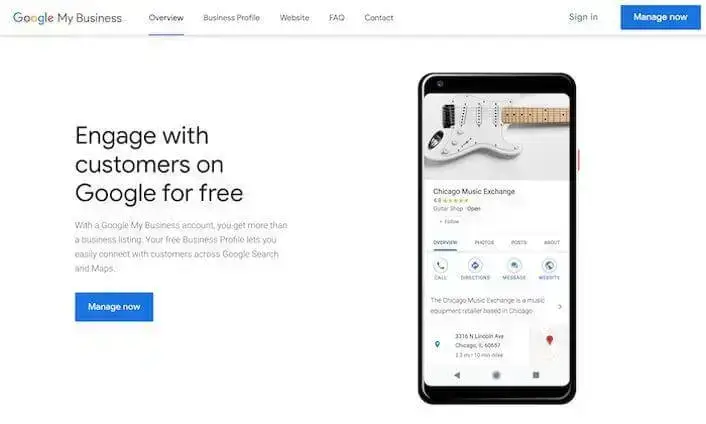
2. Voice Search
Remember the old days of operator-assisted phone calls? Voice search is the 21st-century version. It's not just a fad; it's a seismic shift in the way people interact with technology. Voice queries often sound like someone asking their friend for a recommendation, e.g., "Find me a good Italian restaurant nearby." Mold your content to answer these conversational questions. Make your business the friend that everyone asks for advice.
3. NAP
Your Name, Address, and Phone number (NAP) should be as consistent as your signature on an important contract. A discrepancy as tiny as "St." versus "Street" can throw off search engines. It's like having two different signatures; neither looks credible. Conduct regular audits of your online presence to ensure that your NAP is consistent across all platforms.
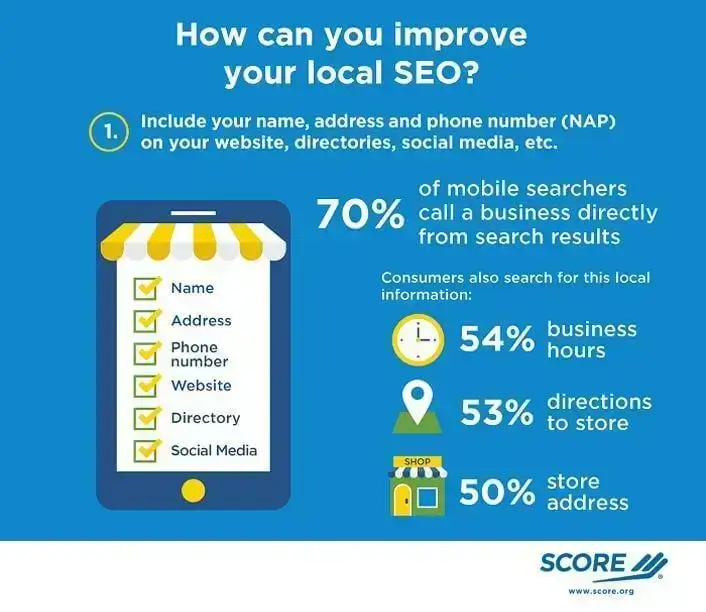
4. Hyper-Local Content
Hyper-local content isn't a buzzword; it's your local folklore. Think of each blog post as a story told around a community campfire. The closer the tale is to the audience's own experiences and surroundings, the more engaged they will be.
Discuss local events, feature community members, and celebrate local achievements. It's not just content; it's a conversation with your community.
5. Local Keywords
Keywords need to be sprinkled judiciously and with purpose. For local SEO, you'll need specific long-tail keywords that resonate with your local audience. If you run a bakery in Brooklyn specializing in gluten-free items, a potential keyword could be "best gluten-free bakery in Brooklyn."
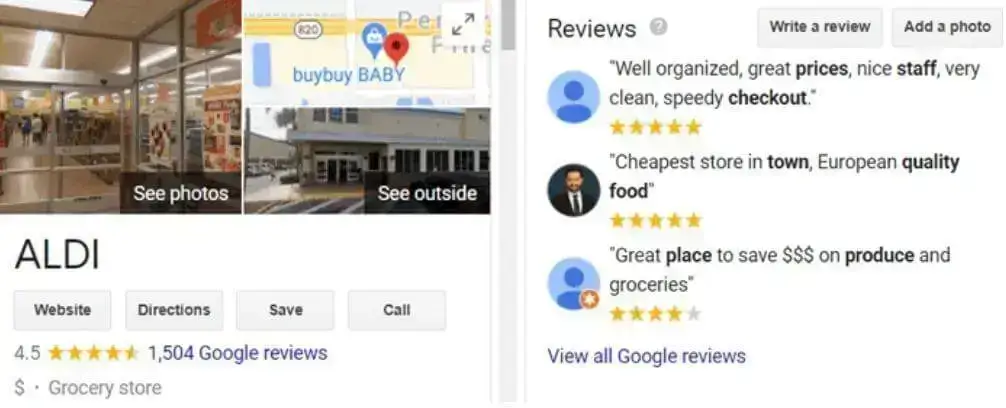
6. Online Reviews
Online reviews are narratives, filled with customer experiences and specific keywords, improving your business's reputation. Encourage customers to share detailed reviews. Don't just aim for five stars; aim for five-star storytelling.
7. Backlinks
A backlink from a local blog or news outlet is like a firm, friendly handshake at a community meeting. It's a vote of confidence, a nod from someone your audience trusts. Strive for backlinks from local sources to bolster your standing in the community, both online and offline.
8. Mobile Optimization
Your website needs to be accessible and legible on a smartphone screen. It's crucial given that many local searches are conducted on the go, often with a sense of urgency. In fact, by 2021, mobile devices will influence more than $1.4 trillion in local sales.
9. Analytics
Pay close attention to metrics that matter—user engagement, bounce rates, conversion rates—and adjust your local SEO content accordingly.

Conclusion
We have discussed local SEO for business in great detail. We saw what it means and how to implement it in the most optimized way. We discussed the best practices and the pitfalls to avoid for local SEO optimization. We hope this guide turns out to be useful and practical for anyone who reads it.




